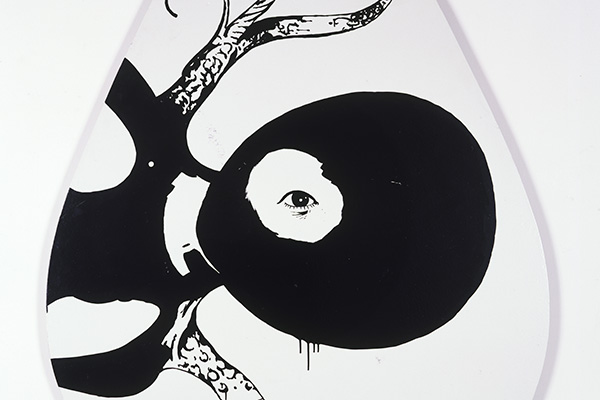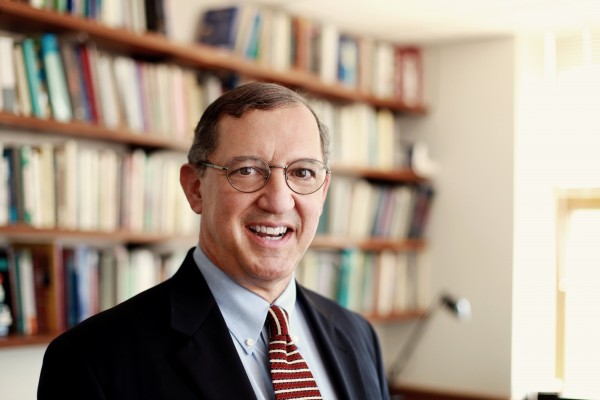‘Guns in the Hands of Artists’ opens at Des Lee Gallery Sept. 16
The gesture is optimistic. The weapon has been removed from the streets, sliced in two and encased in frosted bubbles. In “SMAC” (2014), artist duo CLUB S+S offers an aesthetic antibody to the gun violence epidemic. On Sept. 16, the Sam Fox School will present “SMAC” as part of “Guns in the Hands of Artists,” opening in the Des Lee Gallery in downtown St. Louis.
Medical students get their hands dirty volunteering in urban gardens
Following a weeklong orientation that focused on health disparities and public health, first-year students at the School of Medicine got their hands dirty working at urban gardens in St. Louis. The students volunteered with a nonprofit organization that works to establish and sustain green spaces in neighborhoods across the city.
WashU Expert: NLRB decision reflects evolving labor market
Contract employees and other temporary workers will be able to bargain more effectively with the business entity that controls their working conditions and wages after an Aug. 27 decision by the National Labor Relations Board. The ruling signals a shift toward a more realistic and fact-dependant analysis of the evolving nature of employment in the modern labor market, said noted Washington University in St. Louis labor law expert Marion Crain.
In very ill, probiotics don’t prevent ‘superbugs’ from settling in intestinal tract
Compared with routine medical care, probiotics administered to critically ill patients in intensive care units showed no benefit in preventing the colonization of drug-resistant microbes in the intestinal tract, according to new research at Washington University School of Medicine in St. Louis.
Gephardt Institute presents inaugural Achievement in Community Engagement Awards
The Gephardt Institute for Civic and Community Engagement at Washington University in St. Louis has announced the inaugural recipients of its Achievement in Community Engagement Awards. They are Brian D. Carpenter, PhD (right), associate professor of psychology at Washington University in St. Louis; Leroy D. Nunery II, EdD, educational leader and founder of PlūsUltré LLC; and the United Way of Greater St. Louis.
Blake Thornton: No. 1 standup paddleboarder
Washington University in St. Louis mathematician Blake Thornton, PhD, came in first in the paddleboard division of the MR340, an endurance race on the Missouri River. Before signing up for next year’s race, you might want to read this article as well as watch the video.
Exhibit ‘Rotation 2: Contemporary Art from the Peter Norton Gift’ opens Sept. 11 at Kemper
From the fall of communism to the rise of digital technology, the 1990s were marked by a series of radical transformations. This fall, the Mildred Lane Kemper Art Museum will explore some of the era’s most pressing social, political and technological issues with “Rotation 2: Contemporary Art from the Peter Norton Gift.”
Dacey honored with distinguished service award
Ralph G. Dacey Jr., MD, the Henry G. and Edith R. Schwartz Professor and head of the Department of Neurological Surgery, has received the Walter Reed Distinguished Service Award from his alma mater.
Lawlor to conclude Brown School deanship
Edward F. Lawlor, PhD, dean and the William E. Gordon Distinguished Professor at the Brown School at Washington University, has announced his decision to conclude his deanship on June 30, 2016. Lawlor, who has served as dean since 2004, will remain at the university as the Gordon Professor, and a national search for his successor as dean will be conducted, according to Chancellor Mark S. Wrighton.
Relapse, poor survival in acute leukemia linked to genetic mutations that persist in remission
For patients with an often-deadly form of leukemia, new research by Timothy J. Ley, MD, and colleagues suggests that lingering cancer-related mutations – detected after initial treatment with chemotherapy – are associated with an increased risk of relapse and poor survival.
View More Stories





